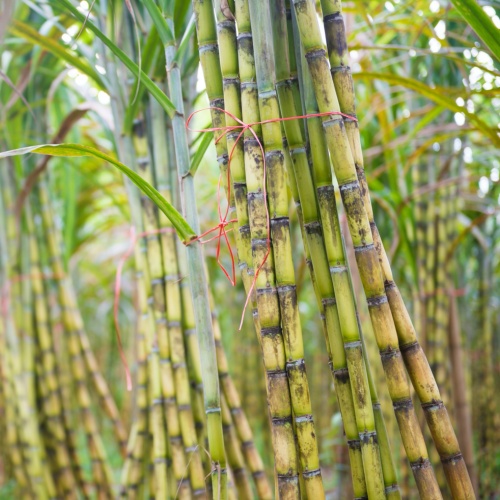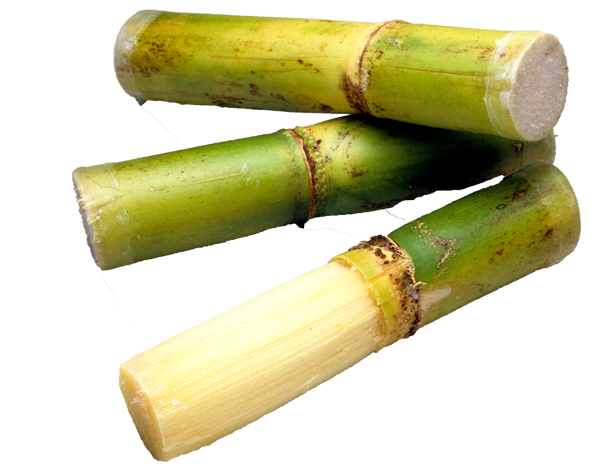Why Sugar and Cane Are Essential Ingredients in Baking and Cooking
Why Sugar and Cane Are Essential Ingredients in Baking and Cooking
Blog Article
Why Cane Sugar Processing Chemicals Are Essential for Modern Sugar Refining
The function of walking cane sugar handling chemicals in contemporary sugar refining can not be overstated, as they are indispensable to enhancing both the efficiency of removal and the overall high quality of the last item. Agents such as phosphoric acid and certain flocculants are employed to eliminate pollutants, causing sugar that not only satisfies consumer expectations but likewise follows industry standards. The effects of these chemicals prolong beyond quality, touching upon market dynamics and environmental considerations. sugar and cane. This elevates important concerns concerning the sustainability of such techniques and their effect on the future of sugar production.
Role of Processing Chemicals
The efficiency of walking stick sugar processing hinges dramatically on the strategic application of handling chemicals. These chemicals play an essential duty in improving the effectiveness and quality of sugar extraction and refining. From the first phases of juice removal to the final purification actions, handling chemicals assist in various critical procedures.
In the removal phase, chemicals such as phosphoric acid and calcium hydroxide are utilized to maximize the clarification process, assisting to remove pollutants and put on hold solids from the walking stick juice. This not just enhances the yield but additionally guarantees the clearness of the last product. In addition, agents like flocculants help in the quick settling of impurities, therefore streamlining the overall process.
As the processing breakthroughs, chemicals are made use of in decolorization and crystallization phases. Turned on carbon and ion exchange materials offer to remove shade and smell, making certain that the refined sugar meets customer quality requirements. Eventually, the function of handling chemicals prolongs beyond operational efficiency; they dramatically impact the sensory attributes of the end product, contributing to market competition. Hence, the thorough selection and application of these chemicals are important for accomplishing optimum end results in cane sugar processing.
Trick Sorts Of Chemicals
Walking cane sugar handling depends on a range of crucial chemicals that promote each phase of production. These chemicals play crucial roles in clarifying, lightening, and purifying the sugar removed from walking cane.
One primary classification of chemicals consists of flocculants, such as polyacrylamide, which help in the information procedure by advertising the gathering and settling of contaminations. In addition, calcium hydroxide is typically utilized to neutralize level of acidity and aid in the removal of non-sugar parts.
Bleaching representatives, such as triggered carbon and sulfur dioxide, are utilized to decolorize the syrup, causing a more clear end product. These chemicals help remove shade compounds that may influence the sugar's appearance and marketability.
Furthermore, phosphoric acid serves as a pH regulatory authority during the handling phases, making sure optimal problems for the chemical tasks involved in sugar extraction and filtration.
Other crucial representatives consist of edta (ethylenediaminetetraacetic acid), which chelates steel ions that could catalyze unfavorable responses, and salt hydroxide, which aids in pH control throughout the refining procedure. Jointly, these chemicals boost efficiency and ensure a high-grade cane sugar product.
Advantages for Sugar Quality
Commonly ignored, making use of particular processing chemicals substantially improves the total top quality of walking cane sugar. These chemicals play a pivotal role in refining processes, making sure that the final item satisfies rigid sector requirements for pureness and taste.

Additionally, processing chemicals help in attaining a regular granulation and appearance, which click to find out more are critical for consumer acceptance. By controlling the condensation procedure, these chemicals make certain that the sugar crystals develop uniformly, resulting in a more enticing item that dissolves well in various applications.
Furthermore, making use of these chemicals can improve the service life of walking cane sugar by minimizing wetness absorption and microbial development. On the whole, the calculated application of processing chemicals is essential for delivering top notch walking stick sugar that fulfills customer expectations and industry demands.
Environmental Effect Considerations

Furthermore, the energy-intensive nature of sugar refining, compounded by chemical usage, frequently results in raised carbon exhausts. This adds to environment modification and increases problems regarding the sustainability of existing refining techniques. Furthermore, the sourcing of these chemicals might entail techniques that intimidate biodiversity, such as monoculture farming, which minimizes the durability of farming environments.

To alleviate these impacts, sugar refiners are increasingly checking out sustainable options and adopting ideal practices that reduce chemical usage. Executing strenuous environmental monitoring systems can aid guarantee that the refining process aligns with environmental requirements and advertises biodiversity. Inevitably, a well balanced approach that prioritizes both sugar high quality and ecological stewardship is essential for the long-term feasibility of the sugar sector.
Future Trends in Refining
As the sugar market comes to grips with the ecological obstacles connected with conventional refining methods, ingenious strategies are emerging to improve both performance and sustainability. One substantial trend is the adoption of green chemistry principles, which prioritize using safe, naturally degradable handling chemicals. This change not just reduces ecological effect but additionally addresses customer need for cleaner production approaches.
Another promising growth is the application of advanced purification modern technologies, such as membrane splitting up and adsorption procedures. These techniques boost the clearness and quality of the sugar while lowering the volume of wastewater generated throughout refining. Additionally, the integration of digital innovations, including IoT and AI, is changing operational performance by making it possible for real-time tracking and predictive upkeep, thus minimizing source waste.
Additionally, using by-products from sugar refining, such as bagasse and molasses, is see post acquiring grip. These materials can be converted into biofuels or value-added items, adding to a round economic climate within the sector. Collectively, these patterns signal a change in the direction of more lasting techniques that not only improve operational performance but likewise align with worldwide sustainability objectives, making certain the future practicality of sugar refining.
Verdict
Walking stick sugar handling chemicals are crucial in contemporary sugar refining, considerably boosting the effectiveness and high quality of sugar extraction. The critical use these chemicals not just boosts the purity and taste of the last product but likewise ensures constant formation and structure. As the market significantly prioritizes sustainability, the fostering of environmentally-friendly handling representatives Our site is most likely to form future trends in refining, eventually resulting in higher high quality products and expanded service life for consumers.

Ultimately, a well balanced technique that focuses on both sugar quality and ecological stewardship is crucial for the long-term stability of the sugar industry.
Walking stick sugar handling chemicals are necessary in modern-day sugar refining, dramatically boosting the performance and top quality of sugar removal.
Report this page